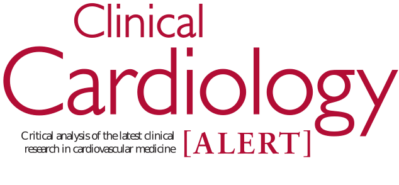
Clinical Cardiology Alert – September 1, 2018
September 1, 2018
View Issues
-
Canagliflozin Reduces Risk of Heart Failure Hospitalizations for Diabetic Patients
In type 2 diabetes mellitus patients with a higher risk of cardiovascular disease, canagliflozin lowered the risk of cardiovascular death or heart failure hospitalization. Patients with pre-existing heart failure may experience even greater benefit.
-
Home-based Detection of Undiagnosed Atrial Fibrillation
In patients with risk factors for atrial fibrillation, screening with a self-applied wearable ECG patch resulted in significantly increased rates of new atrial fibrillation diagnoses within four months, along with greater use of anticoagulants and healthcare resources.
-
Risk of Infective Endocarditis Revisited
In a comparison of patients with infective endocarditis (IE) and either bicuspid aortic valve (BAV) or mitral valve prolapse (MVP) vs. other IE patients at high or low to moderate risk of IE, BAV and MVP patients were more likely to exhibit viridans streptococci group infections of suspected odontogenic origin and cardiac complications at similar rates to high-risk patients.
-
Substance Abuse and Myocardial Infarction
Among patients ≤ 50 years of age with first myocardial infarctions, use of cocaine or marijuana increased the likelihood of an ST-segment elevation myocardial infarction and the subsequent risk of all-cause and cardiovascular mortality.
-
Instantaneous Wave-free Ratio vs. Fractional Flow Reserve: Defining Low-risk Population for Deferral of PCI
Researchers recently found that deferral of percutaneous coronary intervention based on fractional flow reserve and instantaneous wave-free ratio is equally safe, with a low one-year major adverse cardiac event rate of approximately 4%.
